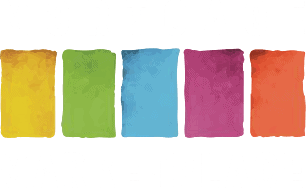Can you get a mortgage if you’re self employed?
- Whole of market mortgage advice
- We'll find the best solution for your personal circumstances
- Access to competitive rates and exclusive products
- Friendly, knowledgeable advisers regulated by the FCA
Get in touch today to discuss your needs and goals.
Read, listen or watch below to learn more.
Home » Self-Employed Mortgages » Can you get a mortgage if you’re self employed?
Can you get a mortgage if you’re Self-Employed?
Joining us on the mortgage and protection podcast this time is Harry White from Mortgage Marketplace, to answer your questions on Self-Employed mortgages.
This material deals with mortgage options for self employed applicants. Fees and charges apply. Outcomes of applications cannot be guaranteed. Speak to a qualified professional before making decisions regarding the suitability of a product. Your home may be repossessed if you do not keep up your mortgage payments.
Is it harder to get a mortgage if you are Self-Employed?
The application process is the same whether the applicant is self-employed, employed or retired. The only slight difference for self-employed applicants is that in the post Covid and post a pandemic period, there’s been a few more restrictions in place. Some of these restrictions may be capped at a certain Loan to Value, but ultimately, the whole application process is identical.
What if I only have one years’ accounts, can I still get a mortgage?
With one year’s accounts there are a limited number of lenders that will accept you, as the majority will want a two to three year period of previous Self-Employed earnings. Certain lenders will take one year’s accounts, but they may want to see what you were doing before that, whether you were employed in the same line or work or perhaps doing something completely different. These checks are undertaken as part of the lender’s due diligence, designed to ensure affordability of the mortgage.
Getting a mortgage with one year’s accounts is definitely achievable, but it does narrow down the options available to applicants.
Are Self-Cert Mortgages still available?
They’re not, every mortgage application now requires you to prove your income.
Can you get a Joint Mortgage if one person is Self-Employed?
This doesn’t affect your ability to apply drastically. You can still apply for and maintain a mortgage if one of you is self-employed and the other is employed or unemployed or a homemaker. The same criteria applies, and whilst there may be restrictions in place on the maximum amount you can borrow, ultimately an application is still very achievable.
Is Buy to Let available for the Self-Employed?
Buy to Let is different with regards to the application process, as the majority of Buy to Let lenders will look at the property being self-financing. Self-financing means that the rental income will be enough to keep you paying the mortgage. The actual calculation used may differ from lender to lender but you can expect lenders to require rental income of 125-145% of the monthly mortgage payments before the property can be considered self-financing.
It’s also worth mentioning that whilst lenders don’t look at income from a self-employed perspective as a deciding factor, the majority of buy to Let lenders will require a minimum income.
What is the difference between someone who is Self-Employed and a Limited Company Director?
The biggest difference is how some self-employed applicants prove their income. For example, a sole trader would be assessed based on their net profit. A partnership is similar, but it’s just their share of the net profit that would be considered. A company director is a little bit different, as the majority of lenders use salary and dividends to prove income.
How does Remortgaging work for the Self-Employed?
If you are remortgaging, you will usually go with a different lender – this means you will be subject to full assessment and underwriting. Whilst there may be restrictions with some lenders, plenty will accept a remortgage from a self-employed applicant – it will all depend on your circumstances and mortgage needs. We cannot guarantee the success of an application but will advise you, in order to obtain the best solution
How much can a Self-Employed person borrow?
There are certain restrictions in place that may cap the size of a mortgage loan. Certain lenders would work on a basis of lower income multiples – for a self-employed applicant, this multiple may be capped at 0.5% below what an employed person would be offered. This is however intended as guidelines only and all lenders will assess applicants in full, taking into account your outgoings, credit history and general needs and circumstances.
What documents do I need when applying for a Self-Employed mortgage?
Before you start an application you will need to prove your ID with a passport or driving licence, and show proof of address with a utility or council tax statement. A self-employed applicant would also need to provide bank statements, usually covering the latest three months, for both business and personal accounts.Tax calculations and tax year overviews will also be needed as proof of income. Please note that lenders reserve the right to request additional information in support of your application and you may therefore be asked to submit further details if needed.
How do I prove my income?
It depends on the number of years you’ve been trading, but the maximum that anybody would request is three years worth of accounts. Speak to your accountant to ensure you have correct, up to date figures that can be used as part of a mortgage application.
When it comes to looking at your mortgage options, it’s important to speak to a professional who has access to the whole of the market and knows the criteria inside and out, to experience the most straightforward application process.
Fees and charges apply. Outcomes of applications cannot be guaranteed. Speak to a qualified professional before making decisions regarding the suitability of a product.
Your property may be repossessed if you do not keep up repayments on your mortgage.
Useful Links
- Limited Company Director Mortgage
- Self-Employed Mortgage with One Years Accounts
- Buy to Let Mortgages for Self-Employed
- Documents Needed for a Self-Employed Mortgage
- Joint Mortgages One Applicant Self-Employed
- What Income do Mortgage Companies look at Self-Employed?
- Are Self-Cert Mortgages Still Available?
- Can You Get A Mortgage If You’re Self Employed?
Mortgage Marketplace
- Independent, whole of market advice
- Mortgage agreed in principal within two hours
- Access to competitive mortgage products
- Free Initial Consultation
- We're a Climate Positive Workforce



